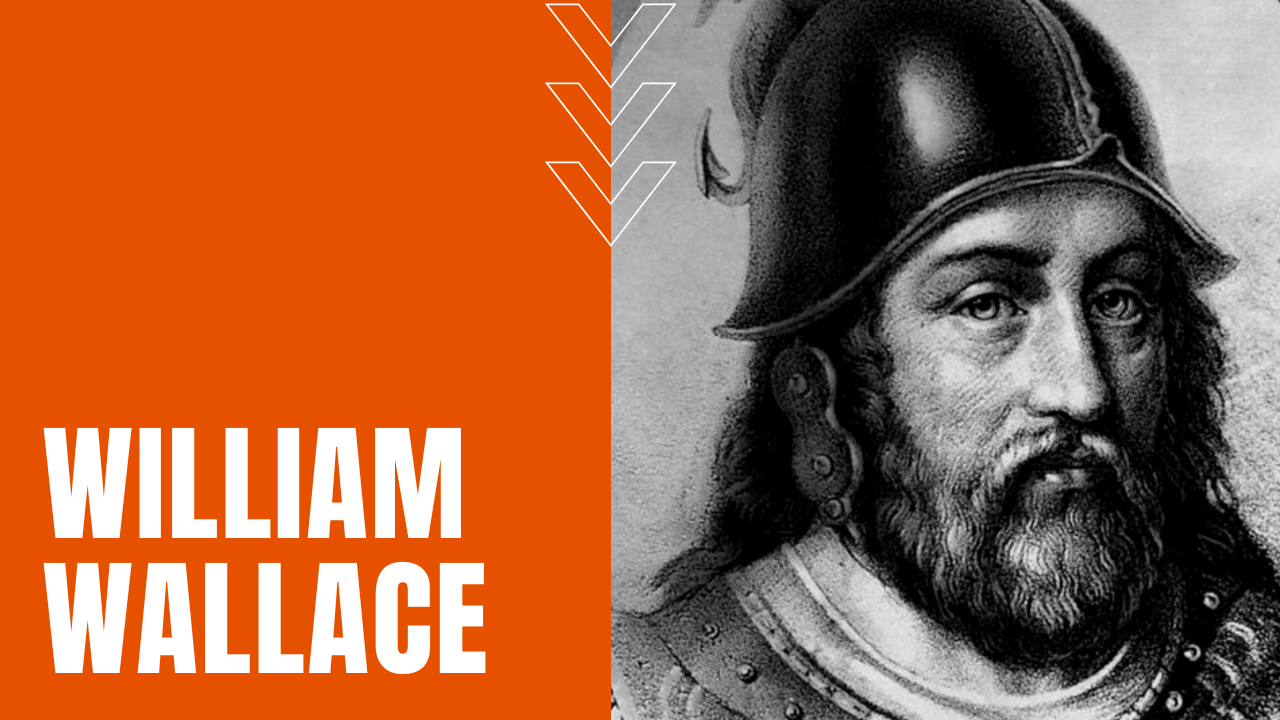William Wallace

The Auld Alliance
After English King Edward the 1st demanded homage from Scottish nobles during his war against the French. Instead, in 1295, a rebellious Scottish Council of Twelve signed a treaty of mutual assistance with France—known now as the Auld Alliance—prompting an invasion by the British at Berwick-upon-Tweed, which ignited the Wars of Scottish Independence.
Guardian of Scotland
In Blind Harry’s The Wallace, the poet writes of Guardian of Scotland war leader William Wallace, that he was “a tall man with the body of a giant, with all his limbs very strong and firm, while legend records Wallace’s height at seven feet tall.
As the fight for Scottish independence gained momentum, on September 11th, 1297, Wallace and fellow commander Andrew Moray proved victorious over the English at the Battle of Stirling Bridge. Despite being vastly outnumbered, Wallace and Moray held their offensive until nearly 10,000 British cavalry and infantrymen had crowded past a quite narrow bridge at Stirling, causing the bridge to collapse when English mercenaries retreated in panic when Wallace called his men to attack.
Moray would die from wounds suffered during the battle, forcing Wallace to go it alone during large-scale raids into northern England.
Battle of Falkirk
In response, in April of 1298, King Edward struck again as the Battle of Falkirk, recruiting some 26,000 largely Welch mercenaries to put an end to Scottish resistance. The battle would prove a decisive victory for England, forcing Wallace to resign as Guardian of Scotland in favor of future king Robert the Bruce.
After his resignation, many historians believe that William Wallace left on a mission to the court of King Philip the 4th of France, pleading his case for military assistance in the Scottish struggle for independence, returning home in 1304 to participate in skirmishes against the British at Happrew and Earnside.
Captured and Quartered
Betrayed by Sir John Menteith—a Scottish knight loyal to King Edward—Wallace was taken to London, where he stood trial for treason and atrocities against civilians in war, as court records elaborate, “sparing neither age nor sex, monk nor nun.” Crowned with an oak garland and named king of the outlaws, Wallace responded to the court’s charges by replying, “I could not be a traitor to Edward, for I was never his subject.”
Following his guilty verdict, on August 23rd, 1305, William Wallace was hanged, drawn and quartered, forever cementing his battle cry “Buaidh no bas” or Death and Victory, into the annals of Scottish history.
